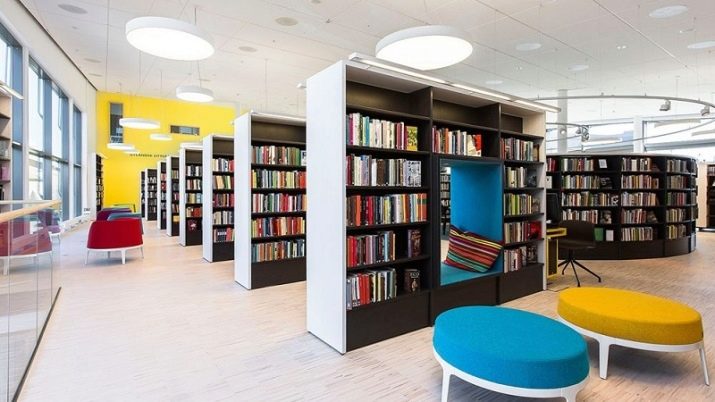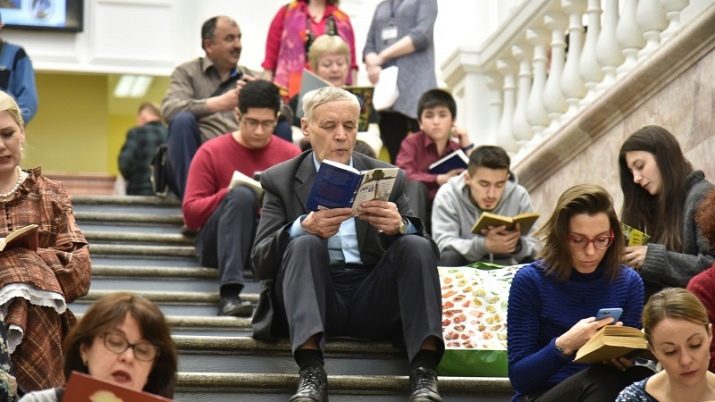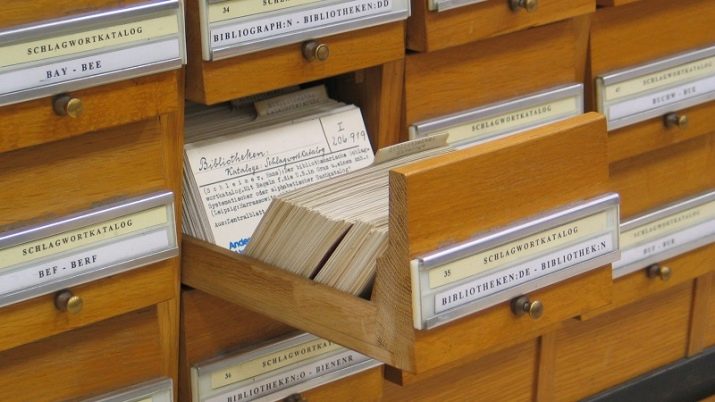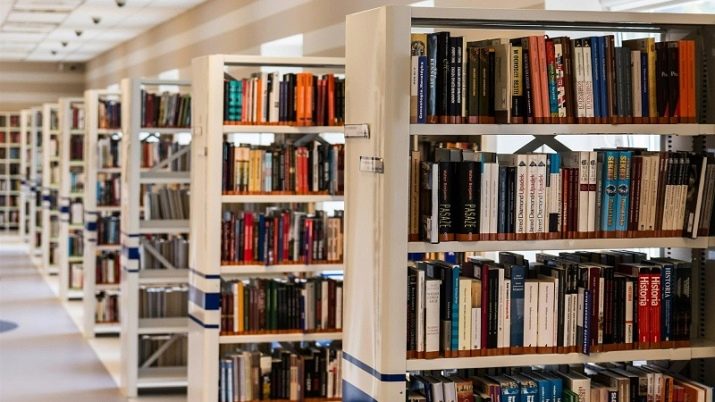All about the profession of a librarian

The all-round development of a person is inextricably linked with books, which is why for many centuries the work of a librarian has been valued in society. These professionals are subject to strict standards and stringent requirements. Unfortunately, with the development of Internet technologies, the possibilities for implementation in this direction have sharply decreased.

Description
The librarian profession is considered one of the oldest in the world. Its prototype appeared long before our era among the Sumerians - it was they who had the first clay tiles, on which signs could be squeezed out with special wedges. It was the first written language, and such tablets became the first library collections in history. With the invention of the papyrus, the work of the keeper of such scrolls began to be appreciated. People have more opportunities to accumulate, store and organize information. Writing was especially highly developed on the territory of Ancient Egypt (it is known that Ramses II had about 20 thousand papyri).
At first, the collections were private, so the functions of their guardians were assigned to slaves. The situation changed in the 6th century BC. NS. in ancient Greece, when the Athenian tyrant Pisistratus created the very first public library. From that moment on, the position of the keeper of the scripts became deeply respected and revered among the people. In the past, the functions of a librarian were much broader than today, not limited to just storing publications. So, in the Alexandria library, these people performed the duties of guides, as well as caretakers.
In addition, they conducted scientific research, described the works of ancient authors, and were also responsible for the restoration of books and their protection from damage.

In the medieval era, the profession developed rapidly. At that time, the role of the church in the life of the state was great, therefore, library funds were mainly located in monasteries, and their accounting was imputed to the monks. The priests focused on religious works - they were collected, systematized and manually copied by novices. During the Renaissance, two large libraries appeared at once - the Vatican and them. Lorenzo Medici. They became famous for their unique collection of ancient manuscripts. There, the position of librarian moved into the category of secular specialties.
In Russia, librarianship was formed much later than in the countries of the Old World. Although it is known that back in 1037, Yaroslav the Wise gathered scribes to translate and enumerate old Byzantine books - it was then that the formation of this profession among the Slavic peoples began. The libraries themselves in Russia opened much later, immediately becoming universal, since they stored not only church literature, but also scientific, fiction and non-fiction literature. Until the beginning of the twentieth century, only representatives of noble families could get into the book depository.
After the revolution, each city, town and village has its own libraries. With them, classrooms were opened, so the position of librarian became the leading one along with the teacher.

Today, a librarian is a specialist in charge of registering and storing books, as well as their issuance to readers. A librarian must be well versed in the fund he manages, have knowledge in related areas of book publishing. Unfortunately, these days this profession is not considered particularly prestigious. With the development of the Internet and the improvement of computer technology, the work of a library employee is becoming less and less in demand. After the appearance of free access to periodicals and electronic editions, the reading rooms were practically empty. Libraries have survived mainly scientific, archival, as well as those related to educational institutions. Most likely, the profession of a librarian is slowly becoming a thing of the past, at best it will not be as widespread as before.
To restore the lost interest in reading paper books, the Government of the Russian Federation is developing a project to change the concept of library systems. Today, the work of the library is cultural and educational activities, which should attract people of various professions and sectors of society. That is why many libraries host seminars, exhibitions, meetings with famous people and theme nights. In summer, literary readings and discussion clubs are held in open areas. Libraries are actively working with schools and kindergartens. Thus, in addition to storing, accounting and lending books, a modern librarian performs many more functions - prepares and holds events, advises visitors and even maintains library accounts on social networks.

Pros and cons of the profession
Of course, the librarian profession has its merits and demerits, just like any other profession.
So, the pluses include:
- calm, measured atmosphere;
- the right to free access to favorite books;
- the ability to constantly expand your horizons;
- the opportunity, in parallel with the main work, to engage in scientific research, writing articles and analytical materials;
- establishing contacts with interesting and useful people.
The disadvantages are also quite significant:
- low wages;
- a small number of vacancies;
- scarce funding of the library fund, which is especially important for libraries in small towns and villages (non-renewal of the fund leads to a decrease in the number of users);
- routine work;
- inevitable contact with dust in the workplace.

Job description
According to the tariff and qualification reference book, the functional duties of the librarian are associated with the constant search for books, sorting them, working with rubrics and databases, including electronic ones.
The core responsibilities of a librarian include a wide variety of activities. Let's list the main ones.
- Search for the requested publications. The librarian must quickly navigate the controlled library collections, know exactly the location of each section of books and each type of cards.
- Accounting and categorization is a rather complicated matter, since any serious library has tens or even hundreds of thousands of books. The employee of the institution should be able to sort them so that you can quickly find any publication requested by the visitor.
- Implementation of a system of bibliographic indexes. They are specialized directories in which all newspapers, magazines and books are classified into specific categories. This makes it easier to find literature that readers are interested in.
- Monitoring the state of the fund. Library specialists must ensure the safety and integrity of publications, and, if necessary, carry out easy repairs, for example, glue torn pages. This is monotonous, painstaking work that requires the utmost care and scrupulousness.
- Providing a competent book storage system. It is known that any paper degrades over time. That is why the librarian must ensure the correct storage conditions for new and old publications.
- Communication with readers. In the course of work, the employee must identify the needs of readers in order to be able to help them in finding the necessary literature. To do this, he must easily navigate in all the variety of books presented, have high communication skills and be able to build a dialogue.
- Reception of new editions. When replenishing the book fund, the librarian enters information about new publications in the card index, and then places them on the shelves in accordance with the catalog. All this takes a lot of time, since each new book must be correctly formatted.
In addition, any librarian is engaged in educational and methodological work, is responsible for the acquisition of the library fund and draws up applications for new publications.

Primary requirements
According to the professional standard, applicants who meet the following requirements can apply for the position of a librarian:
- the presence of higher or secondary specialized education - it can be specialized, pedagogical or philological;
- broad outlook;
- good knowledge in literature;
- skills in working with computer programs Word, Excel and PowerPoint.
A good librarian should:
- know all the rules and methods of serving readers;
- be able to carry out a selection of literature at the request of readers;
- know and use in the work the norms of classification used for the arrangement of magazines, newspapers and books;
- be able to independently develop bibliographic products;
- edit the institution's card index;
- be able to plan, organize and conduct events with the aim of attracting visitors to the library and promoting reading in general.
The work of a librarian is monotonous and routine, requiring perseverance, accuracy and pedantry, therefore it is not suitable for every person. Librarianship is focused mainly on seasoned, well-balanced people. In this profession, erudition, a broad outlook and a developed intellect are fundamental. The library specialist must quickly navigate the literature in a variety of areas.And in order to keep in mind huge amounts of data, he needs a good memory, analytical skills and consistency.

Education
There are several ways to study to be a librarian. If we talk about secondary education, then we can focus on the specialization "Library Science", which is received in colleges. For admission, you do not have to pass exams, since the competitive selection is made on the basis of the average score of the school certificate. Education takes from 2 to 5 years, depending on the form, which can be full-time, part-time or evening.
In higher educational institutions, the librarian is taught in the direction of "Library and Information Activities", as well as "Archival Science and Records Management". For admission, you will have to pass the exam in several subjects: Russian language, literature, as well as history or social studies. Full-time education lasts 4 years, correspondence - 5 years.

Place of work
Modern realities are such that after graduation from the educational approval in the specialty "librarian" it is not so easy to get a job. This profession has a rather narrow focus, so the choice of jobs here is small. The most prestigious is the device in government agencies, private archives and scientific funds. However, there are few vacancies there, and free rates are extremely rare.
It is much easier to get a job as a librarian in educational institutions of various levels: general education schools, colleges, universities or other educational institutions with their own book depository. In these places, library personnel are needed constantly.
At the same time, it does not matter whether it is a state library or a school library, since the job responsibilities and the professional standard will be the same.

Salary and career
Nowadays, the profession of "librarian" is a thing of the past, it can in no way be attributed to those in demand. However, this does not mean that a specialist devoted to librarianship and the spirit of enlightenment will not be able to find a job for himself. Today, libraries are increasingly playing the role of educational and educational centers, arranging interactive events, holding meetings with interesting people, organizing hobby groups for children - in a word, they are trying with all their might to revive the former attraction of the population to reading. This means that an enterprising person can fully realize himself and his abilities in the library system.
Unfortunately, you will not be full of ideas - according to the criterion of earnings, this profession has been and remains one of the most hopeless. Library workers usually receive from 7 to 10 thousand rubles, and when taking advanced training and professional retraining courses, they can apply for the position of a methodologist or head of the library. In this case, the salary can reach 15 thousand rubles. The situation is slightly better in Moscow and St. Petersburg. In capital cities, the chief specialist of a state or scientific library can apply for a salary of 20-25 thousand rubles. In school and university libraries, wages are in line with the national average. Today, the librarian is an extremely important but low-paid profession. That is why it is not particularly in demand among applicants and young professionals who graduated from universities.
According to statistics, more than 60% of Russians consider this area of professional self-realization to be hopeless, therefore, every year the number of those wishing to work in the libraries of our country is decreasing.









